Welcome to the ultimate guide to construction in Rawalpindi & Islamabad! Whether you’re embarking on building your dream home or undertaking a construction project in this vibrant region, this comprehensive guide provides expert insights, tips, and advice to ensure your project’s success. From selecting the right construction company to navigating the intricacies of project planning and execution, we’ve got you covered in every step. Our experienced team is dedicated to delivering exceptional results, ensuring that your construction project is executed precisely and efficiently. Discover why we’re recognized as the Best Construction Company in Rawalpindi & Islamabad, and let us bring your vision to life.
Understanding the Construction Industry in Rawalpindi & Islamabad:
Before diving into the nitty-gritty of construction projects, let’s take a moment to understand the construction industry in Rawalpindi and Islamabad as two of Pakistan’s most populous and rapidly developing cities, Rawalpindi and Islamabad are witnessing a boom in construction activity. The demand for construction services is rising from residential developments to commercial complexes and infrastructure projects.
In recent years, there has been a significant emphasis on sustainable and environmentally conscious construction practices in Rawalpindi & Islamabad. With a growing awareness of climate change and environmental degradation, stakeholders in the construction industry are increasingly adopting green building standards and incorporating renewable energy solutions into their projects.
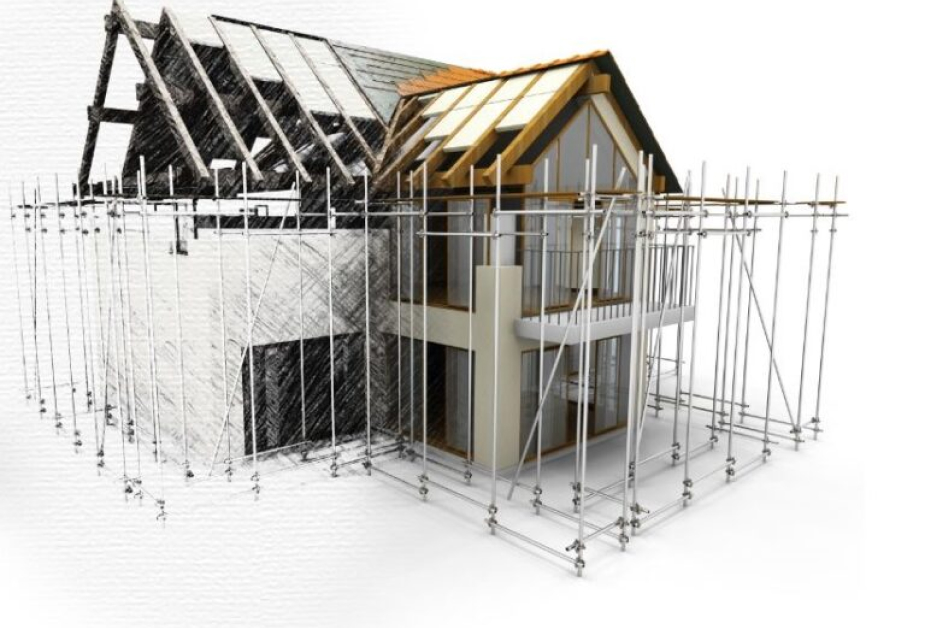
Selecting the Right Construction Company:
Selecting the right construction company is one of the most critical decisions you’ll make when embarking on a construction project. With numerous options available in Rawalpindi & Islamabad, choosing a reputable and experienced firm that aligns with your project goals and vision is essential.
When evaluating construction companies, consider factors such as their track record, portfolio of past projects, certifications, and reputation in the industry. Look for testimonials and reviews from previous clients to gauge the company’s reliability and quality of work. Additionally, don’t hesitate to ask for references and meet with the company’s team to discuss your project requirements.
For house construction projects in Rawalpindi & Islamabad, prioritize companies with experience in residential construction and a keen understanding of local building codes and regulations. A construction company specializing in your project type will be better equipped to deliver results that meet your expectations.
Project Planning and Preparation
Once you’ve selected a construction company, it’s time to dive into the project planning and preparation phase. This stage lays the foundation for a successful construction project. It involves carefully considering various factors, including budgeting, scheduling, site selection, and obtaining necessary permits.
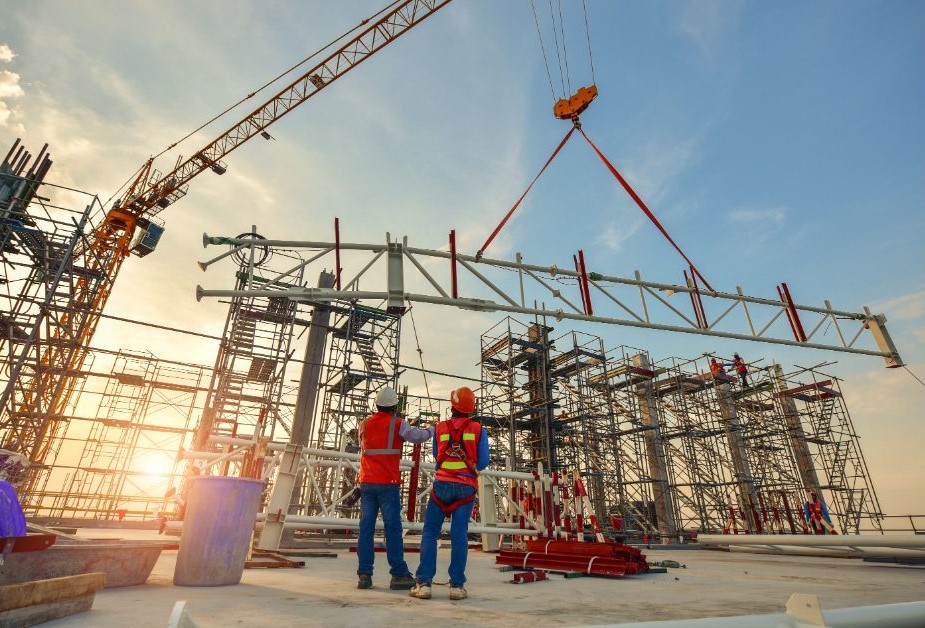
Project Planning and Preparation:
Effective project planning and preparation are essential for ensuring your construction project stays on track and within budget. Here are some critical steps to consider during this phase:
- Budgeting: Establish a realistic budget for your construction project, considering all costs, including materials, labour, permits, and contingencies. Work closely with your construction company to develop a detailed budget that aligns with your financial resources and project goals.
- Scheduling: Develop a comprehensive construction schedule outlining each project phase’s key milestones and timelines. Consider factors such as seasonal weather patterns, material availability, and potential delays when creating your schedule. A well-planned schedule helps keep the project on track and ensures timely completion.
- Site Selection: Choose the right location for your construction project, considering accessibility, proximity to amenities, and environmental impact. Conduct thorough site evaluations to identify potential challenges or opportunities affecting the construction process.
- Permitting and Approvals: Obtain all necessary permits and approvals before commencing construction. Work closely with local authorities and regulatory agencies to ensure compliance with building codes, zoning regulations, and environmental requirements. Please obtain the proper permits to avoid costly delays and legal issues.
Design and Conceptualization:
With project planning and preparation complete, it’s time to focus on your construction project’s design and conceptualization phase. In this stage, your project takes shape, and the vision for your dream home or building begins to come to life.
- Architectural Design: Collaborate with architects, designers, and engineers to develop a comprehensive design for your construction project. When conceptualizing your design, consider factors such as aesthetics, functionality, sustainability, and budget. Work closely with your design team to explore different concepts and options before finalizing the design.
- Detailed Drawings and Plans: Develop detailed drawings and plans that outline every aspect of your construction project, from floor plans and elevations to structural details and interior finishes. These drawings serve as a roadmap for the construction process and ensure everyone is on the same page.
- Material Selection: Choose high-quality materials that meet your aesthetic preferences, performance requirements, and budget constraints. Consider factors such as durability, energy efficiency, and environmental impact when selecting materials for your project. Work with your construction company to source materials from reputable suppliers and ensure timely delivery to the construction site.Offering popular women’s necklaces such as pendants, chokers and chain necklace. Shop for jewelry in a variety of metals and gemstones to suit any occasion
Construction Materials and Techniques:
Once the design and conceptualization phase is complete, it’s time to turn your attention to construction materials and techniques. The choice of materials and construction methods can significantly impact your construction project’s quality, durability, and sustainability.
- Materials Selection: Choose appropriate materials for your construction project’s climate, environment, and intended use. When selecting materials, consider factors such as strength, durability, energy efficiency, and environmental impact. Work closely with your construction company and suppliers to source high-quality materials that meet your project’s requirements.
- Construction Techniques: Select construction techniques that are efficient, cost-effective, and suitable for your project’s scope and scale. Consider labour availability, construction timeframes, and site conditions when determining the best construction methods. Explore innovative techniques and technologies to streamline construction and improve project outcomes.
- Sustainability Considerations: Incorporate sustainable building practices and materials into your construction project to minimize environmental impact and maximize energy efficiency. Explore renewable energy systems, green building certifications, and eco-friendly construction materials to create a more sustainable and resilient built environment.
Project Management and Execution:
With materials selected and construction techniques finalized, it’s time to focus on project management and execution. Effective project management is essential for keeping your construction project on schedule, within budget, and up to quality standards.
- Project Planning: Develop a detailed project plan that outlines key milestones, tasks, and responsibilities for each phase of the construction project. Work closely with your construction company and subcontractors to establish clear timelines and deliverables. Consider material procurement, labor scheduling, and site logistics when planning your project.
- Resource Allocation: Effectively allocate resources to ensure that the right materials, equipment, and manpower are available when needed. Monitor resource utilization throughout the construction process and make adjustments as necessary to prevent delays or shortages.
- Quality Control: Implement rigorous measures to ensure construction work meets established standards and specifications. Conduct regular inspections and quality assurance checks to identify and address defects or deficiencies promptly. Prioritize quality and craftsmanship to deliver a construction project that exceeds client expectations.
- Communication and Collaboration: Foster open communication and collaboration among all project stakeholders, including clients, architects, engineers, subcontractors, and suppliers. Maintain regular communication channels and conduct project meetings to keep everyone informed and engaged throughout construction. Address any issues or concerns promptly to prevent misunderstandings or conflicts.
Safety and Compliance:
Safety and compliance are paramount in construction projects to protect workers, occupants, and the surrounding community. Implementing robust safety measures and ensuring compliance with regulatory requirements are essential for a successful construction project.
- Safety Planning: Develop a comprehensive safety plan that identifies potential hazards, establishes safety protocols, and provides training for workers. Prioritize safety on the construction site and strictly adhere to safety guidelines and regulations.
- Risk Management: Identify and assess potential risks and hazards associated with the construction project, such as falls, electrical hazards, and hazardous materials. Implement risk mitigation strategies to minimize the likelihood of accidents or incidents occurring.
- Compliance Monitoring: Monitor compliance with local building codes, zoning regulations, and environmental requirements throughout construction. Ensure that all construction work meets or exceeds regulatory standards and obtain necessary permits and approvals as required.
- Safety Culture: Cultivate a safety culture among all project stakeholders, emphasizing the importance of safety as a core value. Promote safety awareness and encourage active participation in safety initiatives and programs to create a safe and healthy work environment.
Environmental Consideration:
Incorporating environmental considerations into construction projects is increasingly important to minimize environmental impact and promote sustainability. Here’s how you can integrate ecological considerations into your construction project:
- Energy Efficiency: Design buildings with energy-efficient features and systems to reduce energy consumption and lower utility costs. Consider incorporating passive design strategies, such as orientation, shading, and natural ventilation, to maximize energy efficiency and comfort.
- Renewable Energy: Explore renewable energy options, such as solar panels, wind turbines, and geothermal systems, to generate clean and sustainable power for your construction project. Incorporating renewable energy sources can reduce reliance on fossil fuels and decrease greenhouse gas emissions.
- Water Conservation: Implement water-efficient fixtures and technologies, such as low-flow toilets, water-saving faucets, and rainwater harvesting systems, to minimize water consumption and promote water conservation. Consider landscaping with native and drought-resistant species to reduce irrigation needs and preserve water resources.
- Waste Management: Develop a comprehensive waste management plan to minimize construction waste and maximize recycling and reuse opportunities. Sort and segregate construction waste on-site and coordinate with recycling facilities to divert recyclable materials from landfills. Consider using recycled and reclaimed materials in construction to reduce the demand for virgin resources.
- Green Building Certifications: Pursue green building certifications, such as LEED (Leadership in Energy and Environmental Design) or EDGE (Excellence in Design for Greater Efficiencies), to demonstrate your commitment to sustainable construction practices. These certifications provide third-party validation of your project’s environmental performance. They may offer financial incentives and recognition for your efforts.
By incorporating these environmental considerations into your construction project, you can minimize environmental impact, reduce resource consumption, and create healthier and more sustainable built environments in Rawalpindi & Islamabad.
Case Studies and Success Stories:
To illustrate the principles and best practices discussed in this guide, let’s explore some real-life case studies and success stories of construction projects in Rawalpindi & Islamabad:
- Green Building Showcase: The construction of a LEED-certified office building in Islamabad demonstrates the integration of sustainable design features, such as energy-efficient lighting, passive solar heating, and rainwater harvesting. By prioritizing sustainability, the project achieved significant energy savings. It reduced environmental impact while providing occupants with a healthy and comfortable work environment.
- Residential Renovation: A renovation project in Rawalpindi transformed an outdated and energy-intensive home into a modern and energy-efficient residence. The renovation included upgrades such as insulation, high-performance windows, and energy-efficient appliances, resulting in substantial energy savings and improved comfort for the homeowners.
- Community Development: A community development project in Rawalpindi focused on sustainable design principles to create a vibrant and resilient neighborhood. The project incorporated green spaces, pedestrian-friendly pathways, and energy-efficient housing to promote community engagement, social equity, and environmental sustainability.
These case studies and success stories highlight the diverse approaches and outcomes of construction projects in Rawalpindi & Islamabad, showcasing the positive impact of sustainable design and construction practices on the built environment and the community.
Expert Tips for Success:
To wrap up our ultimate guide to construction in Rawalpindi & Islamabad, let’s share some expert tips and advice from industry professionals:
- Plan Ahead: Develop a comprehensive project plan that outlines clear objectives, timelines, and deliverables. Proper planning is essential for a successful construction project and can help avoid costly delays and setbacks.
- Communicate Effectively: Foster open communication and collaboration among all project stakeholders to ensure everyone is on the same page. Regular communication helps address issues proactively and keeps the project moving forward smoothly.
- Prioritize Quality: Don’t compromise on quality regarding materials, craftsmanship, and construction standards. Investing in quality upfront can save time and money in the long run and ensure the longevity and durability of your construction project.
- Stay Flexible: Construction projects are dynamic and often require adjustments and adaptations. Stay flexible and be prepared to adapt to changing circumstances and unforeseen challenges to keep the project on track.
- Celebrate Success: Celebrate milestones and achievements throughout the construction process. Recognize your team’s hard work and dedication and the progress made toward realizing your project goals.
By following these expert tips and advice, you can confidently navigate the complexities of construction projects in Rawalpindi and Islamabad and achieve success in your endeavors.
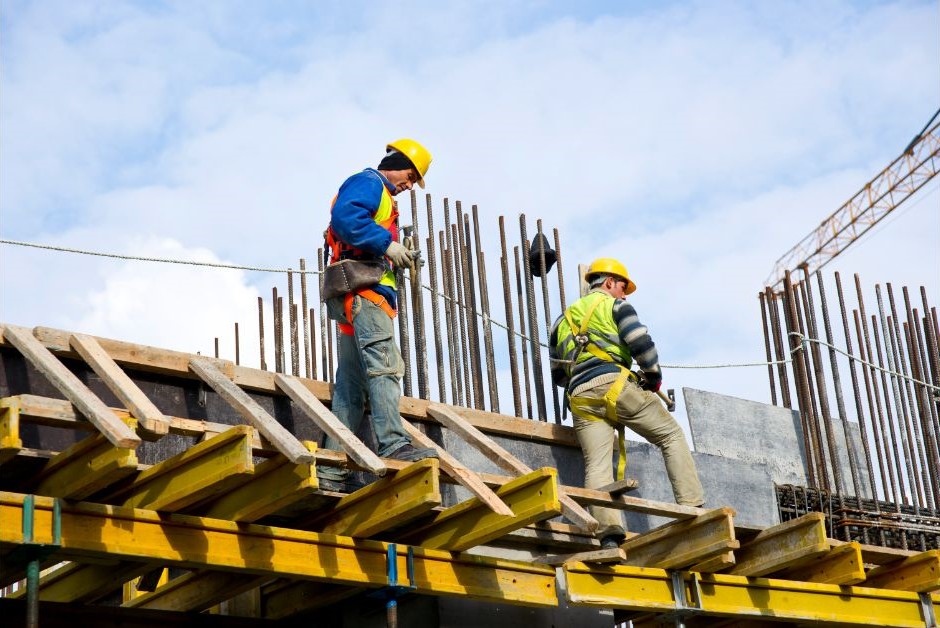
Conclusion:
The ultimate guide to construction in Rawalpindi & Islamabad, curated by Oddisodd, provides valuable insights, tips, and advice to help you navigate the intricacies of construction projects in the region. From selecting the right construction company to incorporating environmental considerations and celebrating success, this guide equips you with the knowledge and resources needed to embark on your construction journey confidently.
Whether you’re building a house, renovating a commercial property, or undertaking a community development project, the principles and best practices outlined in this guide can help you achieve your project goals and positively impact the built environment and the community. From understanding the nuances of different construction projects to fostering collaboration between owners and contractors, remember to stay informed, proactive, and committed to excellence every step of the way. For further insights into the key differences among various construction projects, explore our comprehensive guide: 6 Types of Construction Projects: Key Differences for Owners & Contractors.
Thank you for joining us on this journey through the construction world in Rawalpindi & Islamabad. We wish you success and prosperity in all your construction endeavors with Oddisodd!
FAQS:
How to choose a construction company in Rawalpindi & Islamabad?
- Consider experience, reputation, portfolio, and compliance with project requirements. Work with local authorities for a smooth process.
- Elaboration: It’s crucial to assess a company’s track record, ensuring they align with your project needs. Collaborating with local authorities ensures adherence to regulations, facilitating seamless progress.
Ensuring compliance with local building codes in Rawalpindi & Islamabad?
- Collaborate with construction companies and authorities to secure permits and follow regulations. This ensures safety and legality throughout the project.
- Elaboration: Working closely with construction companies and local authorities streamlines the permit process, ensuring adherence to building codes for a secure and legal construction journey.
Addressing common challenges during construction in Rawalpindi & Islamabad?
- Plan for inclement weather, material shortages, and unexpected site conditions. Maintain open communication and seek guidance from experienced professionals.
- Elaboration: Projects can navigate hurdles efficiently by anticipating challenges and maintaining transparent communication. Leveraging the expertise of seasoned professionals adds invaluable insights to overcome obstacles.
Incorporating sustainable practices into construction projects in Rawalpindi & Islamabad?
- Utilize energy-efficient materials, renewable energy sources, and green certifications. Minimize waste and promote environmental responsibility throughout the construction process.
- Elaboration: Integrating sustainable practices reduces environmental impact and aligns with modern construction standards. Embracing green certifications showcases a commitment to eco-friendly principles, fostering a positive impact on the environment

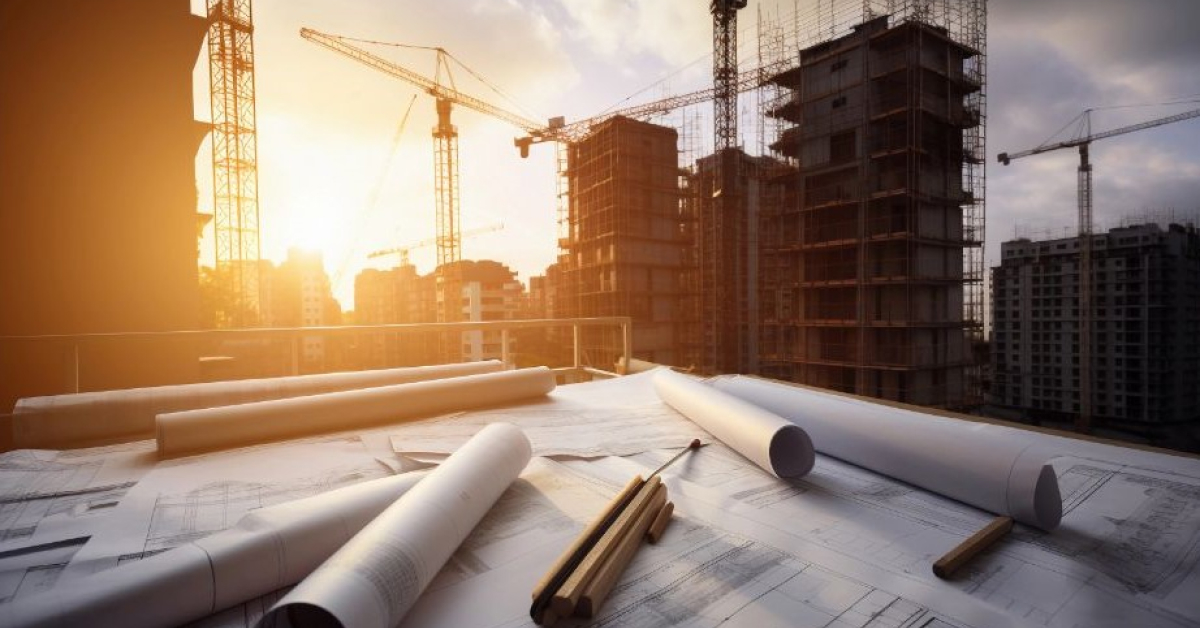
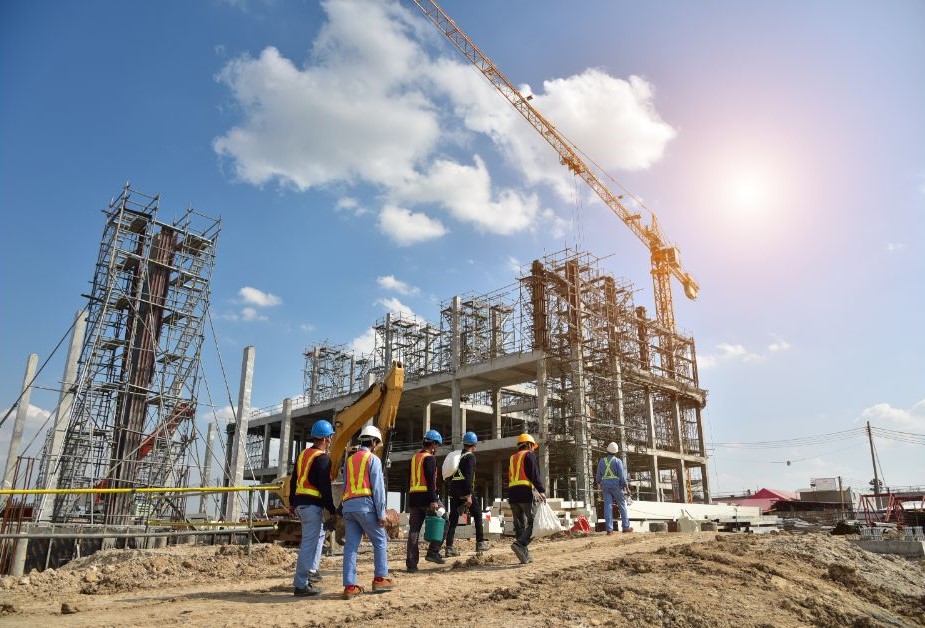
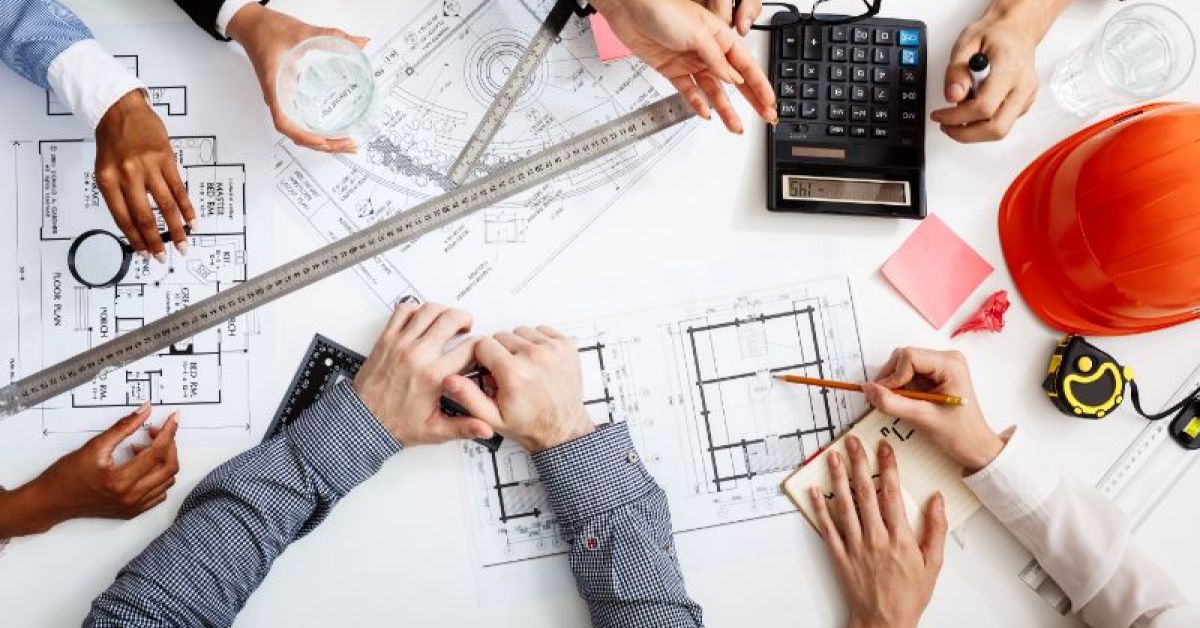


Comments are closed